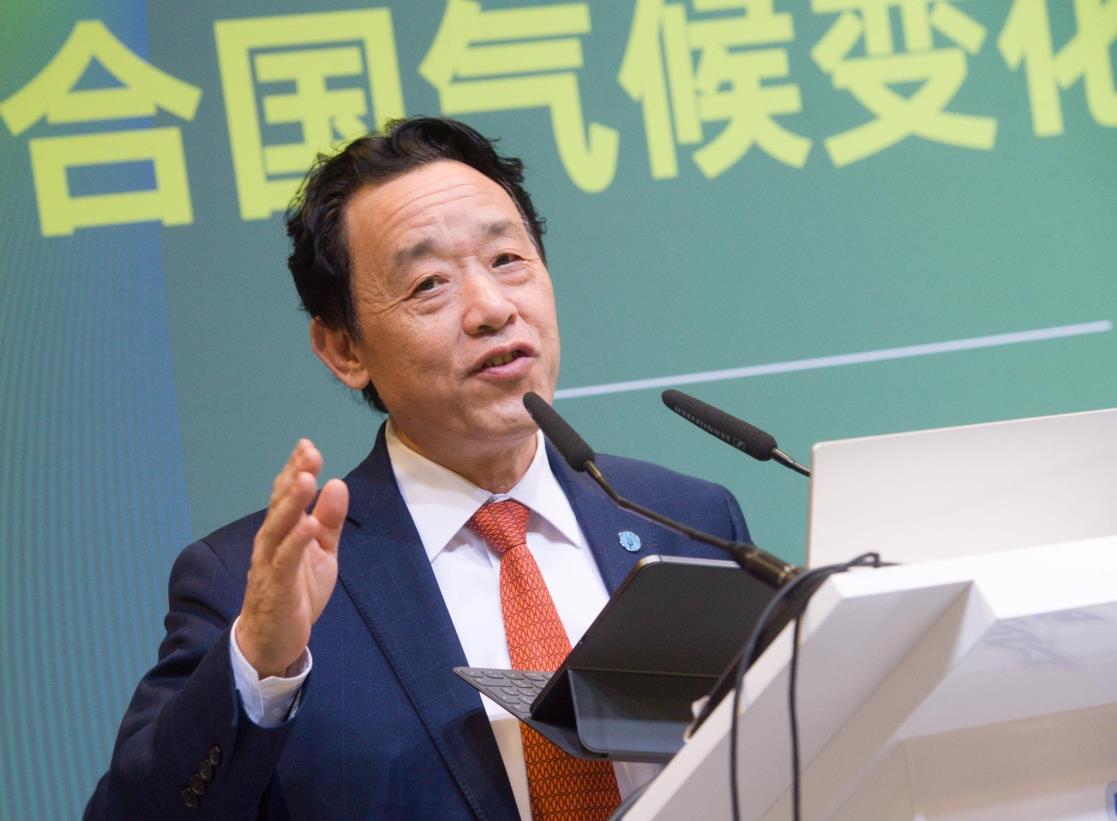South-South and Triangular Cooperation: a "game changer" for world's most vulnerable, says FAO Director-General
Partnerships are working at both institutional and grass-roots levels

FAO Director-General, QU Dongyu, at High-Level Forum on South-South Cooperation on Climate Change in Madrid.
©Photo: ©FAO/Eduardo Dieguez San Bernardo
12 December, Madrid - Innovative partnerships, investment and technical exchange through South-South and Triangular Cooperation are critical for countries especially in the global South to address climate change and achieve the UN's Sustainable Development Goals.
This was the message from FAO Director-General, QU Dongyu, when he spoke to the High-Level Forum on South-South Cooperation at the 25th Session of the Conference of Parties (COP25) in Madrid on Wednesday.
"Climate change is compromising agricultural production, especially for vulnerable people in vulnerable regions who are more exposed, less resilient and have fewer coping mechanisms," Qu said.
He said South-South and Triangular Cooperation can be "a game changer" as it offers "innovative models to promote change and reform".
FAO's pioneering role
South-South (SSC) and Triangular Cooperation - involving third countries and other partners - breaks the traditional dichotomy between donors and recipients and has proven effective in creating jobs, building infrastructure and promoting trade.
Through this cooperation, FAO has facilitated exchanges of technical experience and know-how by fielding more than 2 000 experts and technicians to over 80 countries in Africa, Asia, Latin America, North Africa and elsewhere over the past 20 years.
Qu said South-South worked at both the institutional and at the grass-roots level and had helped to translate development needs into attractive market opportunities for private sector investment.
"We have solutions but for impact we need to scale up and speed up," the Director-General said. "Time is short."
FAO has played a pioneering role in championing South-South and Triangular Cooperation, and in the past two decades more than $370 million has been invested in related projects and activities.
The successful introduction of new technologies through SSC in many countries has contributed to increased food security, especially through the improvement of agricultural productivity, diversification of food crops, small animal and fish production, and rural incomes.
To date, FAO's main SSC providers are China and Brazil, as well as Mexico, Morocco and Venezuela.
Nigeria, Uganda, Senegal, Sri Lanka and Mongolia are among the countries that have benefited from SSC initiatives to enhance food security, livelihoods and the incomes of small family producers. The organization has set an ambitious target of creating up to 200 partnerships with academic and research institutions to foster technical exchanges and capacity-building.
This year marks the 10th anniversary of the FAO-China South-South Cooperation Programme, which has benefited more than 70,000 people directly in 12 developing countries in sub-Saharan Africa and Asia. Since FAO and China established the SSC Programme in 2009, experts from China have shared their knowledge and technologies with local farmers in Africa and Asia to raise agricultural productivity and sustainability in areas such as cereal production, animal husbandry, horticulture, fisheries and aquaculture, and water and soil management and conservation.
Contact
FAO News and Media (+39) 06 570 53625 [email protected]
